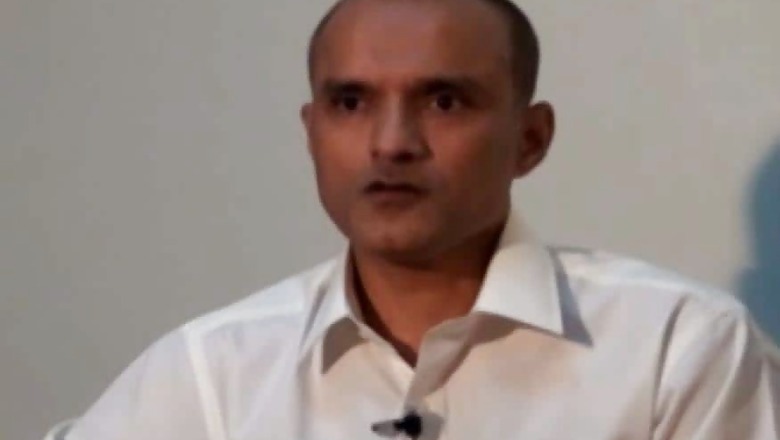
views
Pakistan’s gesture of allowing the family of Kulbhushan Jadhav, the Indian national who has been in Pakistani custody for the past 22 months, is not something which is merely humanitarian but tactical, coming ahead of a written submission it has to make at the International Court of Justice, which is hearing the case.
The hard fact remains that despite Pakistan’s claims that Jadhav was an agent of R&AW, he was in fact abducted from Iran, a third country, by Pakistani intelligence agency ISI.
The Pakistan government is not doing a favour to India or the international community by allowing Jadhav’s family to meet him. It is duty bound to do it. In fact, it has violated the Vienna Convention by not allowing the Indian officials and the family consular access.
It is a clear case of yet another international violation by Pakistan, and Islamabad has to decide that if it has to be on the right side of international law or become an international pariah.
Pakistan’s Foreign Minister Khawaja Muhammad Asif claims that the country has made a concession by allowing Jadhav’s family to meet him, but reality is that Pakistan needs to demonstrate to the international court that it is abiding by the global norms.
Pakistan has made another cardinal mistake by not allowing the family to meet Jadhav alone. If it is serious about dubbing it as a goodwill gesture, then it must walk the talk on this. It will be an emotional moment for the family to be united after all the agony. To turn this into a publicity stunt is far from being humanitarian.
Pakistan had the opportunity to prove to the world that it’s a mature country and should have kept Jadhav’s meeting with the family a secret affair, away from the media glare.
Undoubtedly domestic power play in Pakistan is dictating the outcome of the Kulbhushan Jadav case. It’s the hardliners in Pakistani security establishment Vs the realists.
But Pakistan must realise that by taking a cussed view in the Jadhav case it runs the risk of not only creating a larger wall of hostility with India, there is even bigger risk of a permanent anti-Pakistan feeling amongst the Indian masses.
If it does go ahead and curb terrorism against India, takes action against 26/11 perpetrators, and hands over Jadhav back to India, the tide can turn. It will be beneficial for Pakistan as it can gain from an economic relationship with India. On the other hand, a hostile and non-cooperative attitude in this case can jeopardise the chances of mending the fences between the two neighbours.
The Indian government, which has gone all out in the Jadhav case, must demonstrate its resolve to ensure that he is brought back home. In the past there have been instances of countries at war exchanging prisoners. And despite a chill in India-Pakistan relationship, both sides should realise the enormous diplomatic stakes involved in this case.
To the credit of the Narendra Modi government, both the Prime Minister and External Affairs Minister Sushma Swaraj have been proactive in helping Indians in distress abroad. In this case too, they need to use their good offices to engage with the Pakistani leadership to secure Jadhav’s release.
Diplomacy is a game of give and take, and there are enough Pakistani prisoners in India. Away from the media glare, the two countries should discuss a prisoner swap on humanitarian grounds, this can only happen if India convinces Pakistan that it has a lot to lose if it does not treat Jadhav fairly. India now has enough global clout and it must impress the key Pakistani friends in the global community to bring Jadhav back.
Dealing with an irrational actor, in this case Pakistan, is not easy. For Narendra Modi government, which faces elections in 2019, it will be an excellent morale booster to bring Jadhav home in 2018.
Clearly, it will have to deliver something to Pakistan in exchange so that both sides can claim diplomatic victory. That should be a logical outcome of the case. Both sides will do well to ensure that these negotiations happen in the interest of the larger relationship between the two countries, because any foolhardy decision on the part of Pakistan will cause irreversible damage in already bruised Indo-Pak ties.
— The author is a senior journalist and foreign policy commentator. Views are personal
















Comments
0 comment